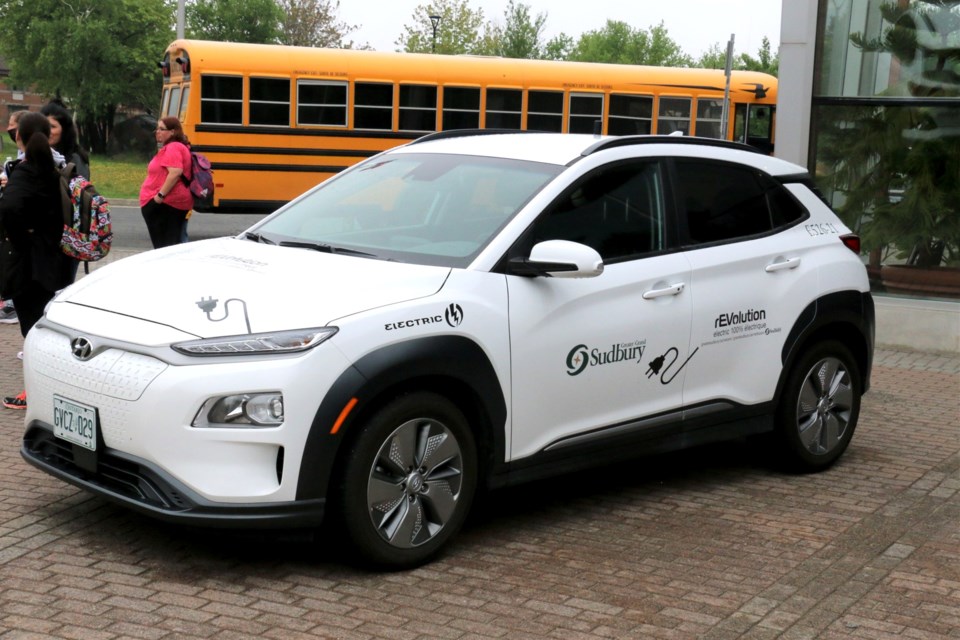As much as Ontario is ready to reap the rewards of the anticipated boom in battery electric vehicles (BEV) in the next 10 years and beyond, the move to go green is not as rosy as it might seem.
That was revealed during the two-day BEV conference held at Science North in Sudbury to explore the future of the BEV industry.
On the first day of the conference, it was revealed the province has a virtual treasure trove of all the right minerals — nickel, lithium, cobalt, and copper — right here in Northern Ontario.
The conference also revealed the harsh reality that most of that supply is still in the ground. It hasn't been mined yet. Or, it hasn't been recycled yet. But big efforts are underway to get at those materials by both Vale and Glencore, two of the leading mining companies represented in Sudbury.
Adam MacMillan, the manager of strategy and strategic prospects for Vale Base Metals, told the Sudbury conference the demand for battery-related minerals is so great right now that Vale cannot do it alone. That's despite the fact that Vale is the largest integrated nickel operation in North America.
"I want to speak a little bit about what we're looking to do in order to respond to some of the demand for battery materials within North America," MacMillan said.
"You know Vale alone or, or one other company, we can't do this on our own. The demand is just so great. And so we're only going to really do that by speaking together, working together as an industry, in communities here in Sudbury, Ontario, and across Canada in order to really realize the potential that we have, because we are competing on a global stage."
MacMillan explained further that nickel is called a critical metal, but not just because of the demand for BEVs.
"There's a reason that they're called critical metals, because they're critical for both battery electric vehicles, but for a lot of other industries as well, too. So in nickel, you know, the products that we make here in Sudbury they can go into battery electric vehicles, but they also go into a lot of other critical applications, aerospace turbines, things of that nature. And so we can't just take all the nickel that we produce today and put it into battery electric vehicles," MacMillan said.
High demand for copper
Copper is another metal in high demand, said MacMillan.
"Sometimes when we think about battery electric vehicles, we think about the battery itself, and the nickel and lithium that's going to be used in it. But in terms of copper, almost three times more of the amount of copper is used in an electric vehicle compared to a traditional internal combustion engine. So there's a significant amount of copper that's required in each one of these electric vehicles that's going to come out," MacMillan said.
Another effort that is underway in Sudbury to find more BEV-related metals is recycling. Sari Muinonen is the smelter custom feed manager at Glencore's Sudbury Integrated Nickel Operations. She said battery vehicles will be important in reducing Canada's carbon footprint and that is part of the reason why it is so important to acquire the critical metals.
Muinonen said people need to understand how fundamentally important so many essential metals are to the Canadian way of life.
"You know, they facilitate bringing the power into our buildings and our vehicles. They make up the vessels of what we eat and how we cook our foods. And quite frankly, you know, why we're here today to talk about the importance of these minerals in our BEV strategies, which are so critical to decarbonizing our energy supply chain," said Muinonen.
Recycling is a big part of that at Glencore, she said.
"I really like to think of recycling as incorporating urban mining into our portfolio. It is treating recyclable materials as an extremely important and meaningful part of our business," Muinonen said.
Five-year goal
She said recycling metals such as nickel, copper and cobalt can contribute to the BEV solution.
"We don't have the finite raw materials available to meet the demand that's coming over the next very short period of time. Recycling is part of our ability to close that gap between the global need and what we have available," Muinonen said.
"So what we want to do within Glencore overall is target a very strategic plan over the next five years to increase our capacity for recyclable materials and be part of the circularity of the battery and electronics market," she added.
Muinonen said part of that will mean improving the recycling technology and more partnerships between government and industry. She added that while Glencore is working to improve its role in recycling, the company is also investing millions of dollars at the same time to reduce emissions and its carbon footprint.
— Sudbury.com




